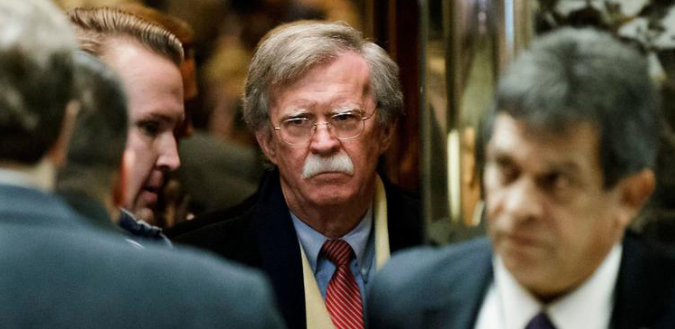With the constant hiring and firing in the White House, it is hard to keep up with who is coming and going. The most recent addition, however, is one to note. The widely respected Lieutenant General H. R. McMaster is no longer the National Security Adviser; he has been replaced by John Bolton.
On the surface, Bolton seems more than qualified for one of the nation’s highest foreign policy positions. His qualifications include stints at the Department of State and the Department of Justice, a position as the Under Secretary of State for Arms Control and International Security, and time served as the United States Ambassador to the United Nations. However, Bolton’s apparent bureaucratic competence is overshadowed by his questionable moral beliefs.
When he was appointed to his U.N. post by President George W. Bush, the decision was met with opposition from Democrats concerned about the way he handled intelligence. For example, in a now-famous incident from the Bush era, Bolton was concerned about biological weapons being developed in Cuba. He planned on sending a memo on this to officials, but when an analyst suggested some edits to the document, saying that Bolton was exaggerating the threat in Cuba, Bolton called for the analyst to be fired. This reckless, impulsive behavior is part of a bigger problem with John Bolton and is precisely why he is dangerous for the country.
With this election cycle, “fake news” has been everywhere. Therefore, it is that much more important for elected officials to maintain clear, concise, and accurate lines of communication with their constituents. With the unpredictable and unstable information Americans receive from President Donald Trump P’00, usually in the form of a tweet, it was comforting to know that we had an experienced professional like Lt. Gen. McMaster in the White House. Obviously, few people agreed with every single one of his policies, but I must say that I enjoyed having someone that I felt Americans could trust as our National Security Adviser. By bringing in Bolton, Trump has just clouded the line of communication between us and the White House even further.
According to multiple people who have dealt with Bolton professionally, he has a tendency to suppress information that does not agree with his personal view or bias. This could be harmful to Americans for a multitude of reasons, one being that a country that is uneducated on the actual issues that are affecting them might push for legislation and political moves that may not be in the best interest of the country. The public can only make the best decisions for themselves when they have all the information available.
John Bolton has also made questionable foreign policy decisions in the past. For example, Bolton supported the 2003 invasion of Iraq, both before and after it took place. There have also been many instances in which Bolton prematurely pushed to have countries like Iran and Iraq bombed. Moreover, he made it clear that he wants to pursue an unprovoked military strike against North Korea. Therefore, Bolton undeniably prefers war as a preemptive measure over attempts at diplomacy. Say what you will about different foreign policy tactics, but a warhawk whose first thought on how to deal with a hostile country is to immediately delve into war is not a good combination with a president with a history of volatile and unpredictable responses to global events.
Having a National Security Adviser who favors impulsive, violent responses to foreign policy issues over logical, diplomatic plans poses a threat to American international relations. Especially during a time when our relationship with North Korea and Russia is complicated and fragile, we must focus on maintaining the safety of our citizens and fostering peace across the globe. While there is no doubt that he has the foreign policy experience needed to be the United States’ National Security Adviser, John Bolton’s inability to keep his personal bias out of his government work makes him a risk that this country cannot afford.





